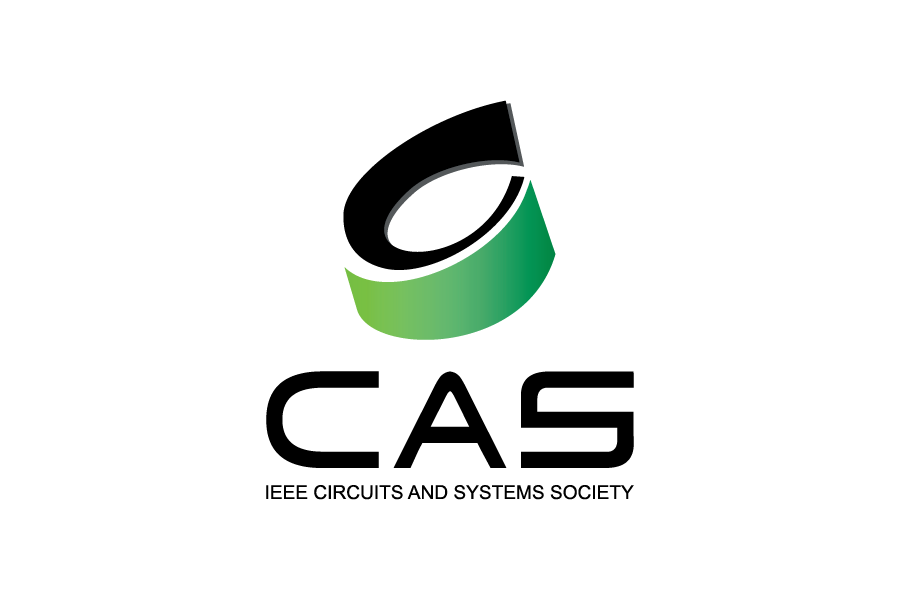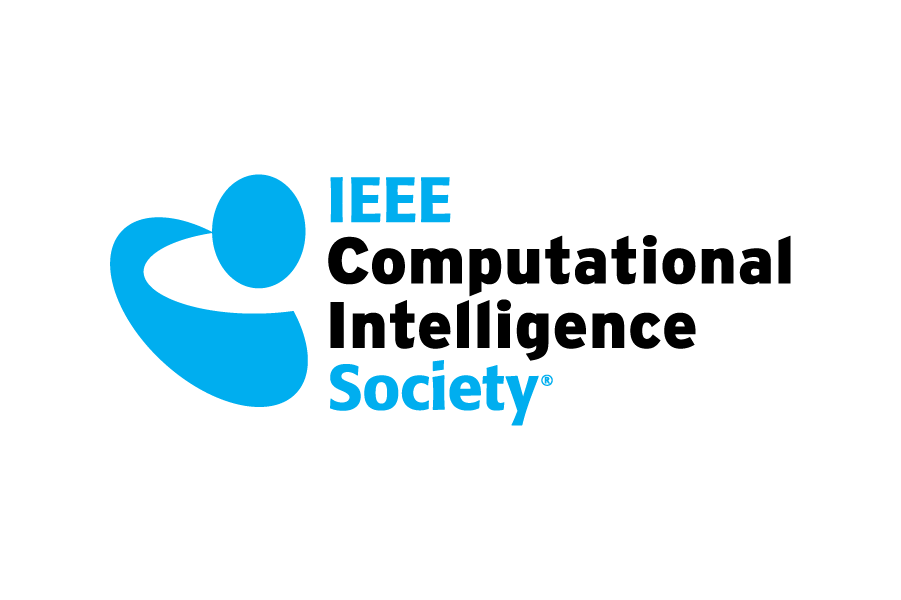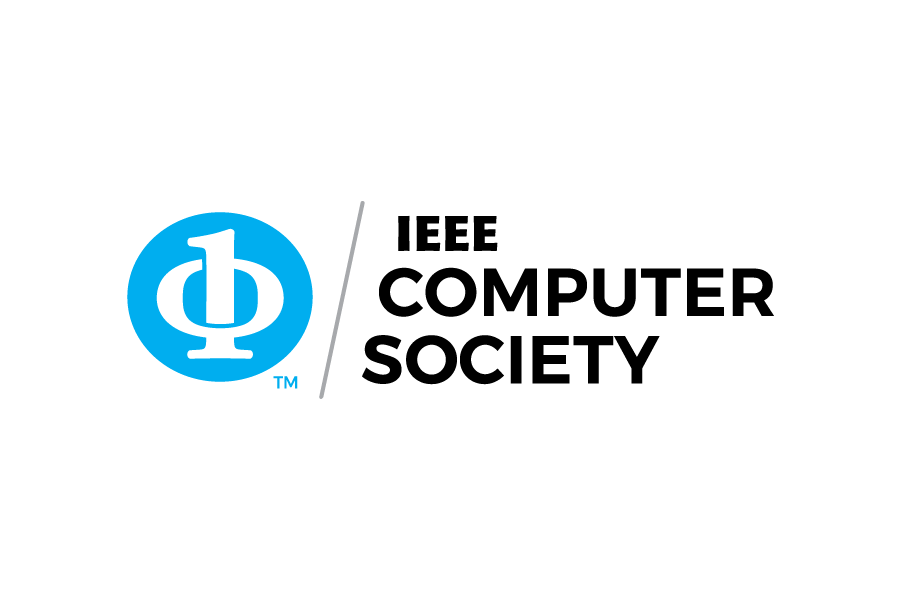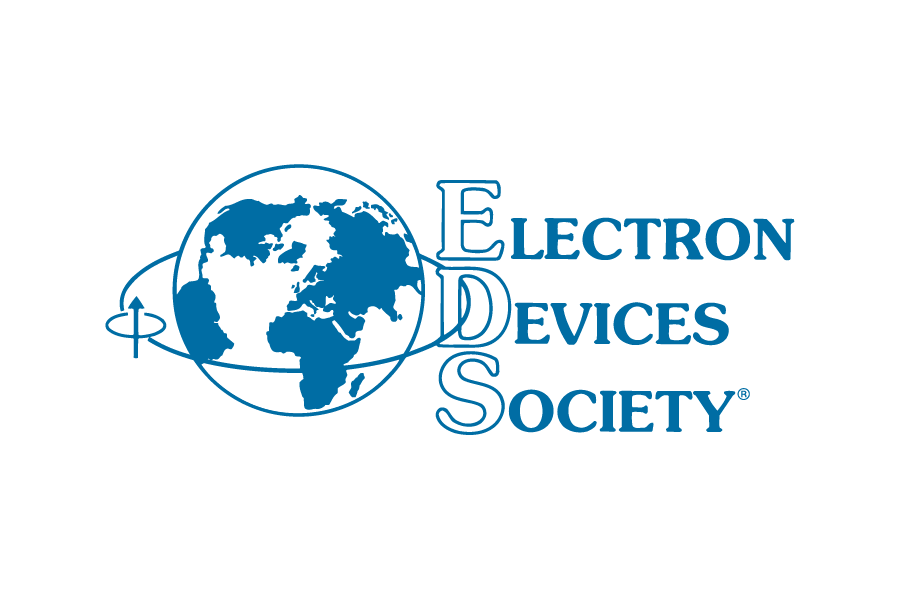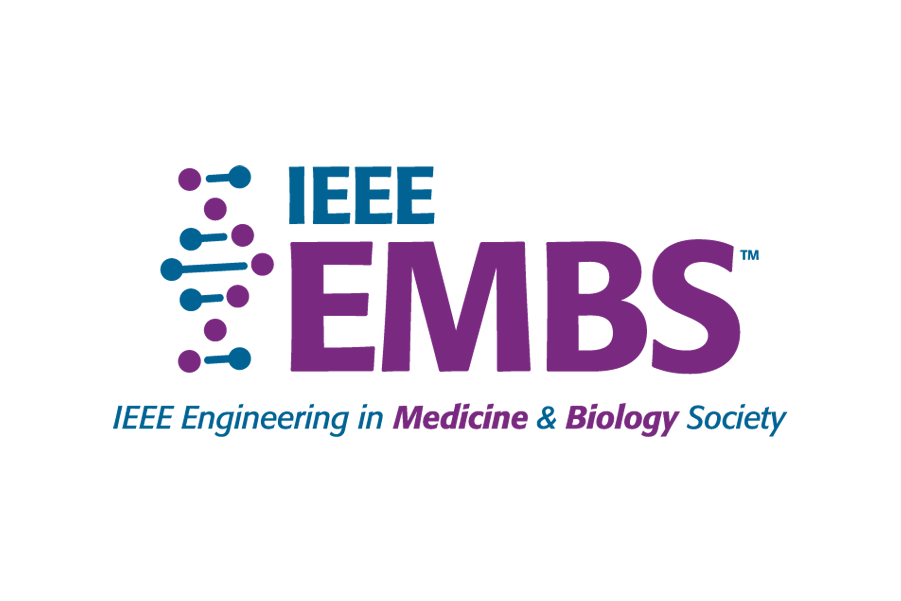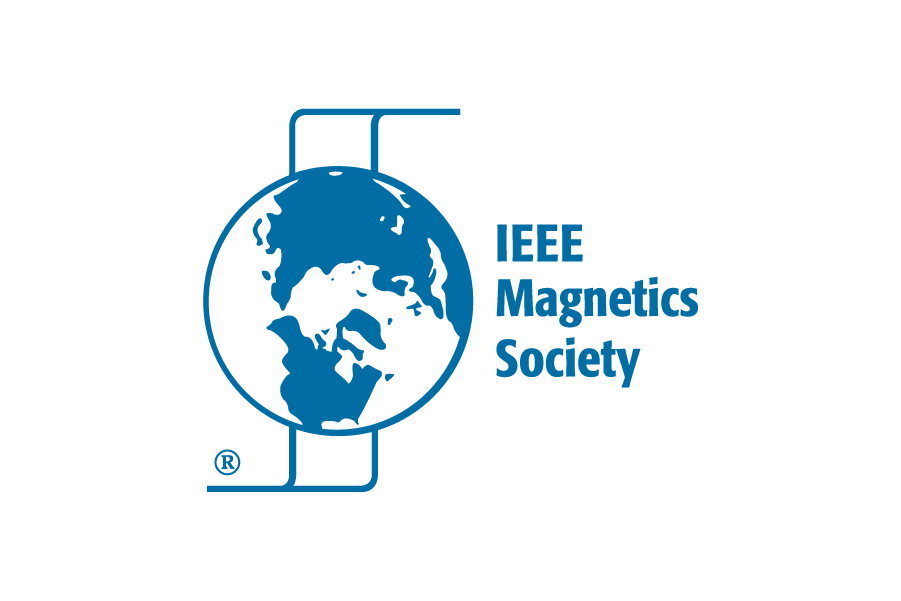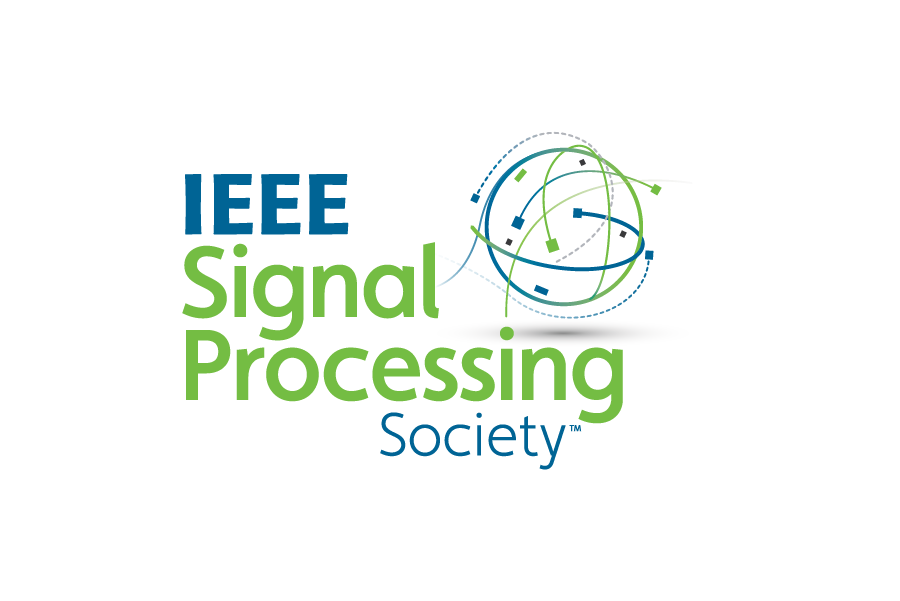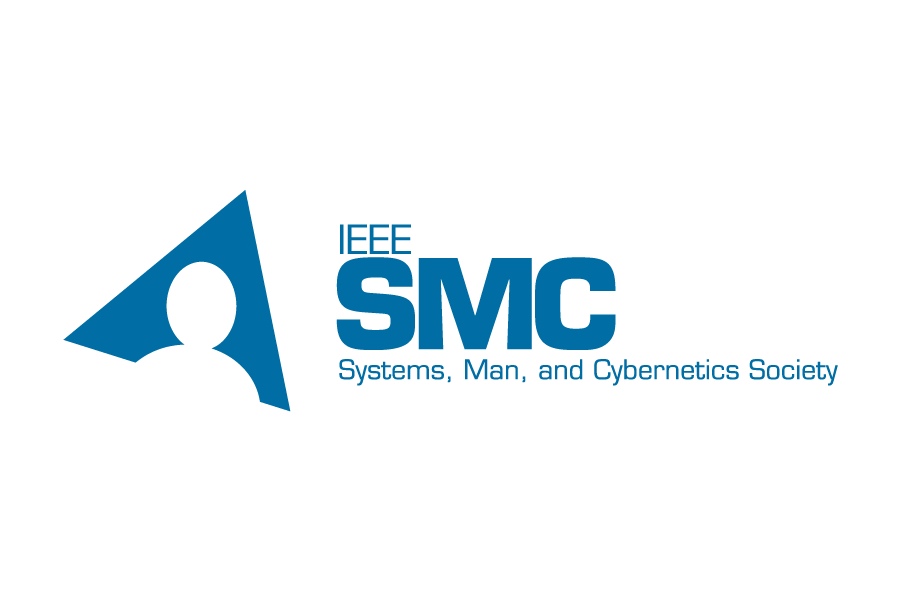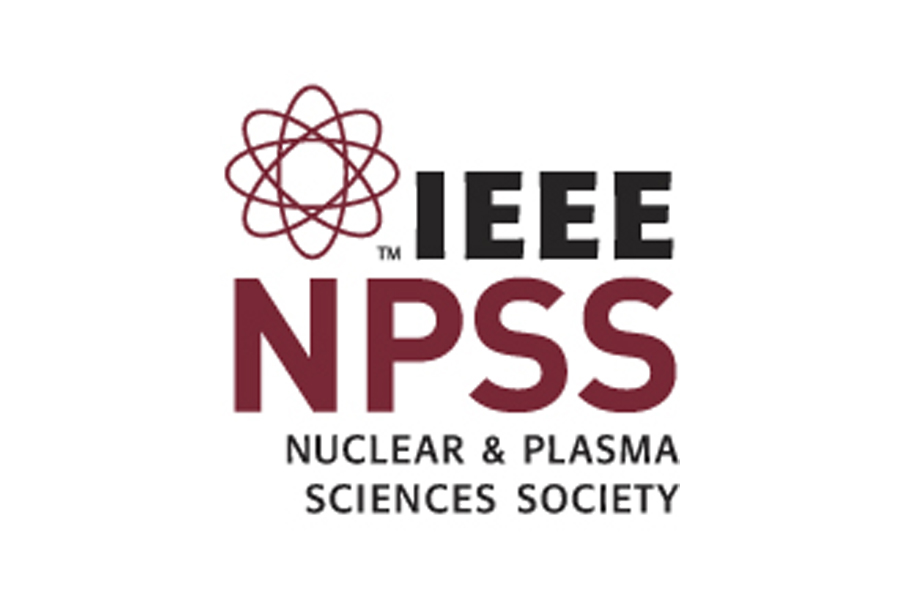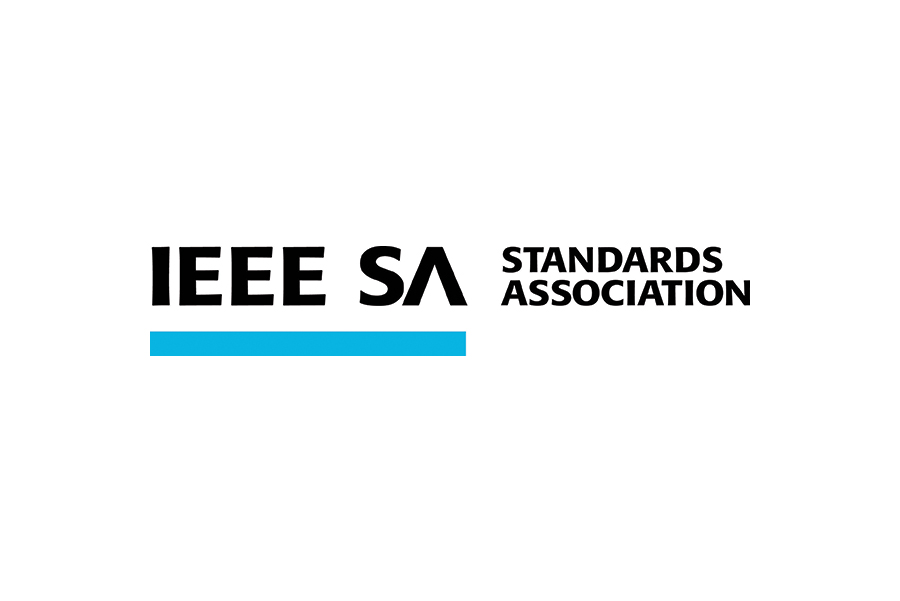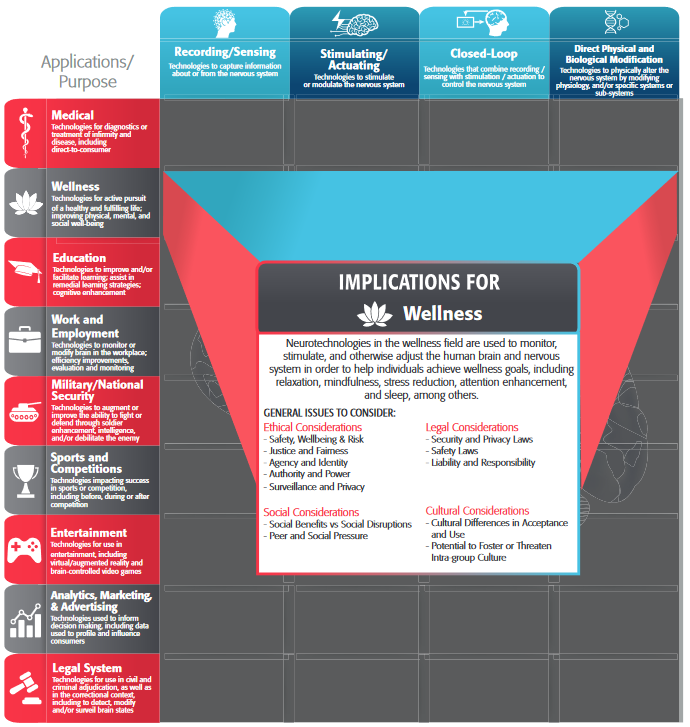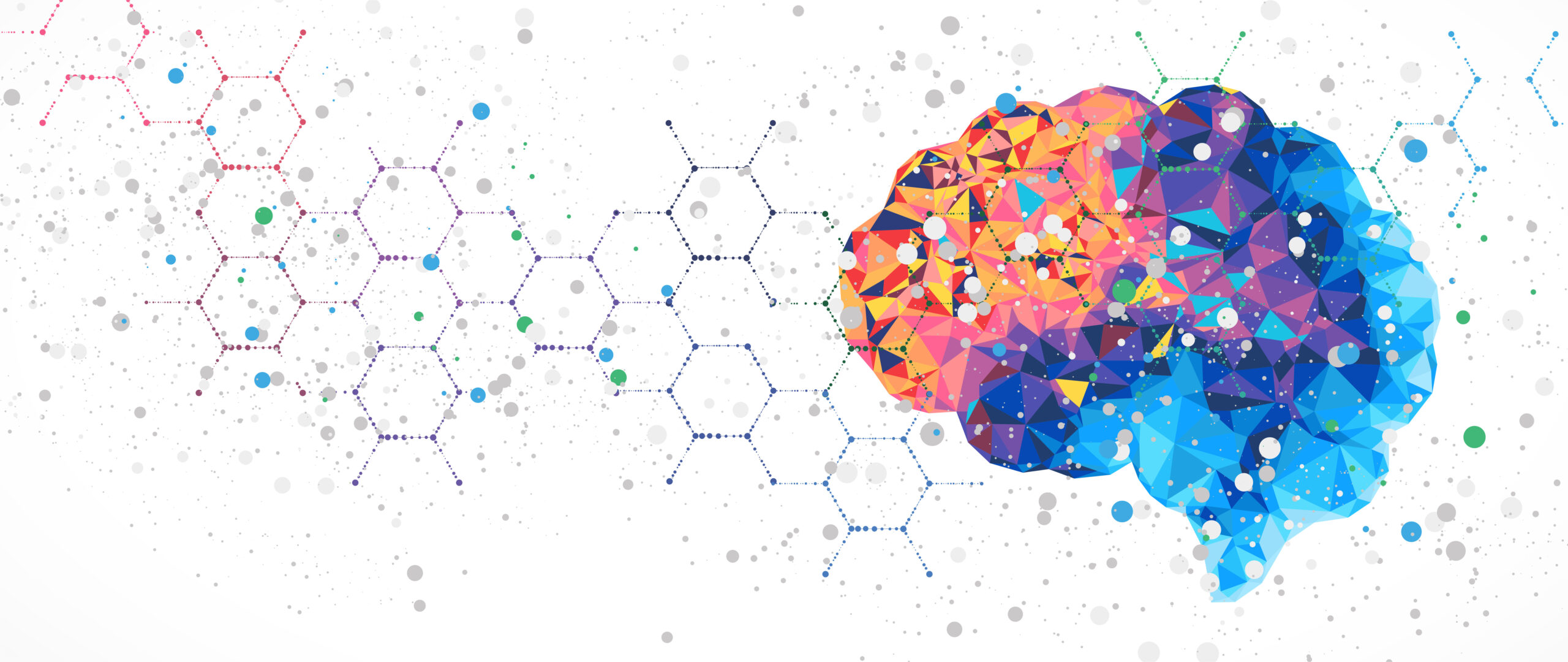
IEEE Brain Discovery and Neurotechnology Workshop
October 3-4, 2024
University of Illinois, Chicago
Registration Open
Advances in understanding the brain both in healthy individuals and those suffering from a disorder have led to groundbreaking discoveries and engineering solutions. Together these advances hold the potential to ameliorate a wide range of neurological disorders and diseases and improve quality of life for those with neurological conditions. However, there are still many unanswered questions including the underlying causes of disease and disorders and the relationship of brain function to behavior. Development and deployment of effective neurotechnology and means of studying the brain through neuroimaging techniques and machine learning will require an integrated approach as well as close collaboration among the neuroengineering community, neuroscientists, and clinical practitioners. The goal of this workshop is to bring together researchers and practitioners across academia, industry, and the clinical profession to highlight innovative neurotechnology and brain research methods, emphasizing their potential to improve understanding of the brain and address a wide range of disorders to improve the human condition.
This workshop is a satellite event to the 2024 Society for Neuroscience Conference and will be held on the campus of the University of Illinois, Chicago. The program will consist of three symposiums covering emerging neurotechnologies, machine learning and computer paradigms for brain discovery, and clinical applications and impact. Each symposium will include a keynote speaker and invited speakers who will discuss their work in the context of larger issues in each of these topic areas. The program also includes lunch sessions highlighting the ethical implications of neurotechnology and new efforts in developing neuroethics standards, exhibits from industry, networking opportunities, and poster presentations.
Program Committee
General Chairs
Selin Aviyente, Michigan State University
Esra Tasali, University of Chicago
Program Chairs
Emerging Neurotechnologies: Wen Li, Michigan State University
Machine Learning and Computer Paradigms for Brain Discovery: Sergey Plis, TReNDS Center & Georgia State University
Clinical Applications and Impact: Ravi Hadimani, Virginia Commonwealth University
Local Chairs
Hananeh Esmailbeigi, University of Illinois, Chicago
James Patton, University of Illinois, Chicago
Advisory Board
Gert Cauwenberghs, UC, San Diego
Rikky Muller, UC Berkeley
Damien Coyle, University of Bath, UK
Natalie Mrachacz-Kersting, Albert-Ludwigs University Freiburg, Germany
Metin Akay, University of Houston
Tülay Adali, University of Maryland, Baltimore County
Communications
Cynthia Weber, Program Manager, IEEE Brain
Thanks to Our Partners
We would like to thank the IEEE Member Societies and Associations for their support of IEEE Brain.
IEEE Brain Discovery and Neurotechnology Workshop Symposiums
Emerging Neurotechnologies
In recent years a range of new neurotechnology innovations have emerged to enable neuroimaging and neural recording and interfacing at multiple scales in variety of settings—in the lab, in the clinic, and in the wild—including low-cost wearable electroencephalography (EEG), ultra-high density EEG, stereoelectroencephalography (sEEG), advanced functional near infrared spectrography (fNIRS) and functional magnetic resonance imaging (fMRI), functional ultrasound imaging (fUS), optically pumped magnetometer magnetoencephalography (OPM-MEG), neural lace, neural dust, stent-electrode recording arrays (stentrodes) and endovascular recording techniques, multielectrode arrays, elecrtocorticographic (ECoG) arrays, multi-photon optics for high-throughput/high-resolution functional brain imaging, and optogenetics. This session aims to present examples of the latest scientific studies involving a selection of these approaches as well as discussion surrounding feasibility of development within the next 5-10 years and major opportunities and challenges in deploying these technologies.
Machine Learning and Computer Paradigms for Brain Discovery
Advances in noninvasive neuroimaging technology such as magnetic resonance imaging and magnetoencephalography have enabled the study of both the healthy and disordered human brain with increasing temporal and spatial resolution. Neuroimaging data poses some unique challenges such as low signal-to-noise ratio, small sample size, and high dimensionality. Recent methodological advances in machine learning have enabled the analysis of brain data across multiple scales and modalities. Current challenges and problems of interest include: neuromorphic systems engineering for brain-inspired natural intelligence; development of interpretable deep learning architectures for learning from neural data; network neuroscience for functional/structural connectivity network analysis, i.e., brain connectomics, across time and subjects; variability of brain networks across subjects; multimodal data fusion; classification and prediction of health status or specific outcomes through biomarker identification. This session aims to present examples of the latest research in machine learning and computer paradigms for brain discovery involving a selection of these approaches as well as discussion on challenges and opportunities, including the transition to clinical practice and applications such as preventive predictive actions.
Clinical Applications and Impact
The first demonstration of a technology for a clinical application with impact was deep brain stimulation for Parkinson’s disease. Interestingly, it took less than 25 years for this technology to become established with more than 80,000 patients having received an implant by 2010. Technologies that restore, replace, or enhance human nervous system function are emerging fast but few are used in daily clinical practice or at home. In this symposium, we will be presenting some of the most promising technologies that have broad clinical application prospects and discuss their remaining important challenges. These include optogenetics-based therapies, where recent advances in optogenetic real-time monitoring and therapeutic interventions have opened up the possibility for providing a complementary treatment following brain injury; neuroprosthetics for the restoration of vision, hearing, or motor function; as well as neuromodulation devices such as brain-computer-interfaces, and more.
Plenary Speaker
Alex Leow, MD, PhD
Professor of Psychiatry and Bioengineering, University of Illinois, Chicago, USA
 With both a doctoral degree in applied mathematics and a medical board certification in adult psychiatry, Dr. Leow is Professor in the Departments of Psychiatry, Biomedical Engineering, and Computer Science at the University of Illinois at Chicago and an attending physician at the University of Illinois Hospital. Co-director of the Computational Neuroimaging and Connected Technology (CoNeCt) lab at UIC, Dr. Leow is the principal investigator of the BiAffect study, the first scientific study that seeks to turn smartphones into “brain fitness trackers”, by inferring neuropsychological functioning using entirely passively-collected typing kinematics metadata collected from the virtual keyboard of a smartphone (i.e., not what you type but how you type it). The BiAffect study app now powers the first-ever crowd-sourced research study with an overarching goal of unobtrusively measuring mood and cognition in real-time using iPhones. Dr. Leow and the BiAffect study have been extensively featured in the news, including Chicago Tribune, Chicago Tonight, Forbes, Wall Street Journal, the Associated Press, Rolling Stone, IEEE Pulse, CBS News, IEEE Spectrum, NPR All Things Considered, FreeThink, and TEDxChicago.
With both a doctoral degree in applied mathematics and a medical board certification in adult psychiatry, Dr. Leow is Professor in the Departments of Psychiatry, Biomedical Engineering, and Computer Science at the University of Illinois at Chicago and an attending physician at the University of Illinois Hospital. Co-director of the Computational Neuroimaging and Connected Technology (CoNeCt) lab at UIC, Dr. Leow is the principal investigator of the BiAffect study, the first scientific study that seeks to turn smartphones into “brain fitness trackers”, by inferring neuropsychological functioning using entirely passively-collected typing kinematics metadata collected from the virtual keyboard of a smartphone (i.e., not what you type but how you type it). The BiAffect study app now powers the first-ever crowd-sourced research study with an overarching goal of unobtrusively measuring mood and cognition in real-time using iPhones. Dr. Leow and the BiAffect study have been extensively featured in the news, including Chicago Tribune, Chicago Tonight, Forbes, Wall Street Journal, the Associated Press, Rolling Stone, IEEE Pulse, CBS News, IEEE Spectrum, NPR All Things Considered, FreeThink, and TEDxChicago.
Amy Kruse, PhD
General Partner and Chief Investment Officer, Satori Neuro, USA
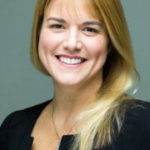 Dr. Amy Kruse is the General Partner and Chief Investment Officer of Satori Neuro, a new venture fund focused on mental health, neurotechnology, and human flourishing on the Satori Capital platform. Amy leverages her decades of experience as a neuroscientist and her prior roles as an operator and a government program manager to discover transformational companies addressing the largest mental health, brain health, and wellness challenges and opportunities. She also draws on her expertise to support Satori Neuro’s portfolio companies as they evaluate and overcome scientific and implementation challenges, with a specific emphasis on deploying complex technology into real-world environments. Prior to leading Satori Neuro, Amy was a General Partner at Prime Movers Lab, where she led the fund’s early-stage life sciences investments in human augmentation and longevity. She continues to serve as a Board Director at several Prime Movers Lab portfolio companies including: Cognixion, Paradromics, Gilgamesh Pharmaceuticals, Attune Neurosciences and Dimension Inx. Additionally, she serves on the board of Satori Neuro portfolio companies TARA Mind and Motif Neurotech and is a Board Observer to portfolio companies Apollo Neuro and Feel Therapeutics. She previously served as the Chief Scientific Officer of Optios, an applied neuroscience research organization that translates cutting-edge neuroscience discoveries into practical tools to enhance the human experience, and as the Vice President and Chief Technology Officer of Cubic Global Defense, where she oversaw the company’s research and development (R&D) programs. Early in her career, Amy served as a government civilian program manager at the Defense Advanced Research Projects Agency (DARPA), where she created and oversaw the Agency’s first performance-oriented neuroscience programs. Amy is member of the External Oversight Committee for the NIH Blueprint MedTech program, an advisor to the BrainMind ecosystem, an advisor to the Capital Factory in TX, and a mentor to the OneMind Accelerator. She is a frequent contributor to defense panels and advisory boards for organizations including DARPA, the National Academies, and the Defense Science Board. She is also the author of numerous scientific papers, chapters, and articles. Amy earned a Bachelor of Science in Cell and Structural Biology and a PhD in Neuroscience from the University of Illinois Urbana-Champaign, where she was awarded a National Science Foundation Graduate Fellowship.
Dr. Amy Kruse is the General Partner and Chief Investment Officer of Satori Neuro, a new venture fund focused on mental health, neurotechnology, and human flourishing on the Satori Capital platform. Amy leverages her decades of experience as a neuroscientist and her prior roles as an operator and a government program manager to discover transformational companies addressing the largest mental health, brain health, and wellness challenges and opportunities. She also draws on her expertise to support Satori Neuro’s portfolio companies as they evaluate and overcome scientific and implementation challenges, with a specific emphasis on deploying complex technology into real-world environments. Prior to leading Satori Neuro, Amy was a General Partner at Prime Movers Lab, where she led the fund’s early-stage life sciences investments in human augmentation and longevity. She continues to serve as a Board Director at several Prime Movers Lab portfolio companies including: Cognixion, Paradromics, Gilgamesh Pharmaceuticals, Attune Neurosciences and Dimension Inx. Additionally, she serves on the board of Satori Neuro portfolio companies TARA Mind and Motif Neurotech and is a Board Observer to portfolio companies Apollo Neuro and Feel Therapeutics. She previously served as the Chief Scientific Officer of Optios, an applied neuroscience research organization that translates cutting-edge neuroscience discoveries into practical tools to enhance the human experience, and as the Vice President and Chief Technology Officer of Cubic Global Defense, where she oversaw the company’s research and development (R&D) programs. Early in her career, Amy served as a government civilian program manager at the Defense Advanced Research Projects Agency (DARPA), where she created and oversaw the Agency’s first performance-oriented neuroscience programs. Amy is member of the External Oversight Committee for the NIH Blueprint MedTech program, an advisor to the BrainMind ecosystem, an advisor to the Capital Factory in TX, and a mentor to the OneMind Accelerator. She is a frequent contributor to defense panels and advisory boards for organizations including DARPA, the National Academies, and the Defense Science Board. She is also the author of numerous scientific papers, chapters, and articles. Amy earned a Bachelor of Science in Cell and Structural Biology and a PhD in Neuroscience from the University of Illinois Urbana-Champaign, where she was awarded a National Science Foundation Graduate Fellowship.
Speakers
John Rogers, Northwestern University, USA
Soft Bioelectronic Systems as Neural Interfaces
 Professor John A. Rogers began his career at Bell Laboratories as a Member of Technical Staff in the Condensed Matter Physics Research Department in 1997, and served as Director from the end of 2000 to 2002. He then spent thirteen years at the University of Illinois, as the Swanlund Chair Professor and Director of the Seitz Materials Research Laboratory. In 2016, he joined Northwestern University as the Simpson/Querrey Professor, where he is also Director of the Institute for Bioelectronics. He has co-authored nearly 900 papers and he is co-inventor on more than 100 patents. His research has been recognized by many awards, including a MacArthur Fellowship (2009), the Lemelson-MIT Prize (2011), the Smithsonian Award for American Ingenuity in the Physical Sciences (2013), the Benjamin Franklin Medal (2019), and a Guggenheim Fellowship (2021). He is a member of the National Academy of Engineering, the National Academy of Sciences, the National Academy of Medicine and the American Academy of Arts and Sciences.
Professor John A. Rogers began his career at Bell Laboratories as a Member of Technical Staff in the Condensed Matter Physics Research Department in 1997, and served as Director from the end of 2000 to 2002. He then spent thirteen years at the University of Illinois, as the Swanlund Chair Professor and Director of the Seitz Materials Research Laboratory. In 2016, he joined Northwestern University as the Simpson/Querrey Professor, where he is also Director of the Institute for Bioelectronics. He has co-authored nearly 900 papers and he is co-inventor on more than 100 patents. His research has been recognized by many awards, including a MacArthur Fellowship (2009), the Lemelson-MIT Prize (2011), the Smithsonian Award for American Ingenuity in the Physical Sciences (2013), the Benjamin Franklin Medal (2019), and a Guggenheim Fellowship (2021). He is a member of the National Academy of Engineering, the National Academy of Sciences, the National Academy of Medicine and the American Academy of Arts and Sciences.
Christos Davatzikos
Machine Learning and Neuroimaging: Contributions to understanding heterogeneity of neurodegenerative and neuropsychiatric diseases and to precision diagnostics
 Christos Davatzikos is the Wallace T. Miller Sr. Professor of Radiology at the University of Pennsylvania, and Director of the recently founded AI 2 D Center for AI and Data Science for Integrated Diagnostics. He has been the Founding Director of the Center for Biomedical Image Computing and Analytics since 2013, and the director of the AIBIL lab (AI in Biomedical Imaging). He holds a secondary appointment in Electrical and Systems Engineering and in the Division of Informatics at Penn as well as at the Bioengineering an Applied Mathematics graduate groups. He obtained his undergraduate degree by the National Technical University of Athens, Greece in 1989, and his Ph.D. degree from Johns Hopkins, in 1994, on a Fulbright scholarship. He then joined the faculty in Radiology and later in Computer Science, where he founded and directed the Neuroimaging Laboratory. In 2002 he moved to Penn, where he founded and directed the section of biomedical image analysis. Dr. Davatzikos’ interests are in medical image analysis. He oversees a diverse research program ranging from basic problems of imaging pattern analysis and machine learning to a variety of clinical studies of aging and Alzheimer’s Disease, schizophrenia, brain cancer, and brain development. Dr. Davatzikos has served on a variety of scientific journal editorial boards and grant review committees. He is an IEEE fellow, a fellow of the American Institute for Medical and Biological Engineering, and member of the council of distinguished investigators of the US Academy of Radiology and Biomedical Imaging Research.
Christos Davatzikos is the Wallace T. Miller Sr. Professor of Radiology at the University of Pennsylvania, and Director of the recently founded AI 2 D Center for AI and Data Science for Integrated Diagnostics. He has been the Founding Director of the Center for Biomedical Image Computing and Analytics since 2013, and the director of the AIBIL lab (AI in Biomedical Imaging). He holds a secondary appointment in Electrical and Systems Engineering and in the Division of Informatics at Penn as well as at the Bioengineering an Applied Mathematics graduate groups. He obtained his undergraduate degree by the National Technical University of Athens, Greece in 1989, and his Ph.D. degree from Johns Hopkins, in 1994, on a Fulbright scholarship. He then joined the faculty in Radiology and later in Computer Science, where he founded and directed the Neuroimaging Laboratory. In 2002 he moved to Penn, where he founded and directed the section of biomedical image analysis. Dr. Davatzikos’ interests are in medical image analysis. He oversees a diverse research program ranging from basic problems of imaging pattern analysis and machine learning to a variety of clinical studies of aging and Alzheimer’s Disease, schizophrenia, brain cancer, and brain development. Dr. Davatzikos has served on a variety of scientific journal editorial boards and grant review committees. He is an IEEE fellow, a fellow of the American Institute for Medical and Biological Engineering, and member of the council of distinguished investigators of the US Academy of Radiology and Biomedical Imaging Research.
Invited Speakers
Sudhin Shah, Cornell University, USA
Objective Neurophysiological Markers of Cognitive Recovery following Pediatric Brain Injury
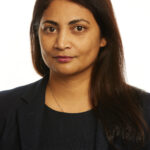 Dr. Sudhin Shah is a cognitive neuroscientist focused on studying and identifying mechanisms underlying cognitive recovery following adult and pediatric brain injury. In her lab, she conducts clinical translational studies in both adult and pediatric brain injury, employing clinically feasible neurophysiological tools— the electroencephalogram (EEG) and transcranial direct current stimulation (tDCS)—alongside state-of-the-art neuroimaging tools (magnetic resonance imaging (MRI) and positron emission tomography (PET) ligand studies. The lab has identified novel biomarkers of altered executive function after traumatic brain injury (TBI) in adults, and in recovery from coma in pediatric subjects.
Dr. Sudhin Shah is a cognitive neuroscientist focused on studying and identifying mechanisms underlying cognitive recovery following adult and pediatric brain injury. In her lab, she conducts clinical translational studies in both adult and pediatric brain injury, employing clinically feasible neurophysiological tools— the electroencephalogram (EEG) and transcranial direct current stimulation (tDCS)—alongside state-of-the-art neuroimaging tools (magnetic resonance imaging (MRI) and positron emission tomography (PET) ligand studies. The lab has identified novel biomarkers of altered executive function after traumatic brain injury (TBI) in adults, and in recovery from coma in pediatric subjects.
Keith Mathieson, University of Strathclyde, UK
MicroLED devices for optical manipulation of neural circuits
 Professor Mathieson holds a Chair in Emerging Technologies from the Royal Academy of Engineering and was Director of the Institute of Photonics, from 2012 to 2022, at the University of Strathclyde. He has been a full Professor in Neurophotonics within the Dept. of Physics, since July 2017, where he leads a research team in the development of optoelectronic neurotechnologies to interface with neural systems in an effort to understand aspects of brain activity. Since 2009, Prof. Mathieson has also been collaborating with Prof. D. Palanker (Stanford University) on the development of an optoelectronic retinal prosthesis to restore sight to patients with degenerative retinal diseases. The device is now being progressed through clinical trials (formerly by Pixium Vision and now Science Corporation), restoring low-vision (20/460) to 47 blind patients with the dry form of age-related macular degeneration. Since establishing his lab at the University of Strathclyde, Prof Mathieson has developed optoelectronic technologies that harness the technique of optogenetics. These are being used to enhance the understanding of neural circuit activity in animal models of degenerative neural conditions. This research is being translated to the pre-clinical neuroscience community through projects with neurotechnology companies, such as Blackrock Neurotech, Atlas Neuro, Neuronexus and NeuroVLC. In 2014, Prof. Mathieson was elected as a Fellow of the Royal Society of Edinburgh, Scotland’s National Academy.
Professor Mathieson holds a Chair in Emerging Technologies from the Royal Academy of Engineering and was Director of the Institute of Photonics, from 2012 to 2022, at the University of Strathclyde. He has been a full Professor in Neurophotonics within the Dept. of Physics, since July 2017, where he leads a research team in the development of optoelectronic neurotechnologies to interface with neural systems in an effort to understand aspects of brain activity. Since 2009, Prof. Mathieson has also been collaborating with Prof. D. Palanker (Stanford University) on the development of an optoelectronic retinal prosthesis to restore sight to patients with degenerative retinal diseases. The device is now being progressed through clinical trials (formerly by Pixium Vision and now Science Corporation), restoring low-vision (20/460) to 47 blind patients with the dry form of age-related macular degeneration. Since establishing his lab at the University of Strathclyde, Prof Mathieson has developed optoelectronic technologies that harness the technique of optogenetics. These are being used to enhance the understanding of neural circuit activity in animal models of degenerative neural conditions. This research is being translated to the pre-clinical neuroscience community through projects with neurotechnology companies, such as Blackrock Neurotech, Atlas Neuro, Neuronexus and NeuroVLC. In 2014, Prof. Mathieson was elected as a Fellow of the Royal Society of Edinburgh, Scotland’s National Academy.
Jian-Ping Wang, University of Minnesota, USA
Magnetism and Spintronics in Brain Research and Biomedical Applications
 Jian-Ping Wang is a Distinguished McKnight University Professor and Robert Hartmann Chair in Electrical and Computer Engineering at the University of Minnesota. Wang is a fellow of National Academy of Inventors, IEEE and APS. Wang is the recipient of 2024 IEEE Achievement Award (Magnetic Society), the highest honor in magnetics. He received the 2019 Technical Excellence Award from Semiconductor Research Corporation (SRC) “Innovations and Discoveries in Nanomagnetics and Novel Materials that Accelerated the Production of Magnetic Random-access Memories”. Wang received the Information Storage Industry Consortium (INSIC) Technical Achievement Award 2006 for his pioneering work on the exchange coupled composite magnetic media, which has been used in all Data Centers. He is the technical Founder of three startup companies including Niron Magnetic Inc, which manufactures clean earth magnet. Wang is the director of Minnesota NeuroSpin Initiative which is a platform to develop and apply new technologies for brain research and clinical applications.
Jian-Ping Wang is a Distinguished McKnight University Professor and Robert Hartmann Chair in Electrical and Computer Engineering at the University of Minnesota. Wang is a fellow of National Academy of Inventors, IEEE and APS. Wang is the recipient of 2024 IEEE Achievement Award (Magnetic Society), the highest honor in magnetics. He received the 2019 Technical Excellence Award from Semiconductor Research Corporation (SRC) “Innovations and Discoveries in Nanomagnetics and Novel Materials that Accelerated the Production of Magnetic Random-access Memories”. Wang received the Information Storage Industry Consortium (INSIC) Technical Achievement Award 2006 for his pioneering work on the exchange coupled composite magnetic media, which has been used in all Data Centers. He is the technical Founder of three startup companies including Niron Magnetic Inc, which manufactures clean earth magnet. Wang is the director of Minnesota NeuroSpin Initiative which is a platform to develop and apply new technologies for brain research and clinical applications.
Vesna Sossi, University of British Columbia, Canada
High Resolution PET Brain Imaging: New Frontiers
 Dr. Vesna Sossi is a Professor in the University of British Columbia (UBC) Physics and Astronomy Department and has been leading UBC PET and PET/MRI neuroimaging since 2009. She received the Laurea degree from the University of Trieste, in High Energy Physics and the PhD degree from UBC in Nuclear Physics. She has first worked on detectors and data analysis as applied to measurements of nuclear reactions cross sections and then transitioned to Nuclear Medicine based imaging. Since then, she has worked in many areas ranging from instrumentation related topics such as development of data reconstruction and quantification algorithms, motion correction for high resolution PET data, design and development of a preclinical MR-compatible PET insert, to more applied areas such as development of novel kinetic modeling approaches for PET tracers and performance and interpretation of pre-clinical and clinical studies as related to neurodegeneration, Parkinson’s disease in particular. She is an IEEE Fellow, recognized ‘for contributions to quantitative and translational brain PET imaging’ and currently IEEE NPSS President. Her publication list includes 240 peer reviewed papers and more than 300 abstracts; she sits on several national and international review committees and is a reviewer for many journals and conferences.
Dr. Vesna Sossi is a Professor in the University of British Columbia (UBC) Physics and Astronomy Department and has been leading UBC PET and PET/MRI neuroimaging since 2009. She received the Laurea degree from the University of Trieste, in High Energy Physics and the PhD degree from UBC in Nuclear Physics. She has first worked on detectors and data analysis as applied to measurements of nuclear reactions cross sections and then transitioned to Nuclear Medicine based imaging. Since then, she has worked in many areas ranging from instrumentation related topics such as development of data reconstruction and quantification algorithms, motion correction for high resolution PET data, design and development of a preclinical MR-compatible PET insert, to more applied areas such as development of novel kinetic modeling approaches for PET tracers and performance and interpretation of pre-clinical and clinical studies as related to neurodegeneration, Parkinson’s disease in particular. She is an IEEE Fellow, recognized ‘for contributions to quantitative and translational brain PET imaging’ and currently IEEE NPSS President. Her publication list includes 240 peer reviewed papers and more than 300 abstracts; she sits on several national and international review committees and is a reviewer for many journals and conferences.
Maysam Chamanzar, Carnegie Mellon University, USA
High throughput Multiplexed Electro-optic Neural Recording
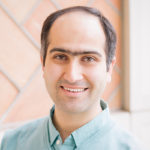 Maysam Chamanzar, is the William D. and Nancy W. Strecker Associate Professor of Electrical and Computer Engineering at Carnegie Mellon University, where he is running an interdisciplinary research program at the interface of neural engineering, nanotechnology, photonics and neuroscience to design next generation multimodal neural interfaces. He is also a faculty member of the Biomedical Engineering Department, and the Carnegie Mellon Neuroscience Institute. His lab has pioneered novel multimodal neural interfaces to understand the neural basis of brain function and dysfunction and implement novel prosthetics. Maysam is the recipient of a number of awards including the NSF CAREER Award, Spira Excellence in Teaching Award, HKN Teaching Award and the Dr. William D. and Nancy W. Strecker Career Development Chair Professorship.
Maysam Chamanzar, is the William D. and Nancy W. Strecker Associate Professor of Electrical and Computer Engineering at Carnegie Mellon University, where he is running an interdisciplinary research program at the interface of neural engineering, nanotechnology, photonics and neuroscience to design next generation multimodal neural interfaces. He is also a faculty member of the Biomedical Engineering Department, and the Carnegie Mellon Neuroscience Institute. His lab has pioneered novel multimodal neural interfaces to understand the neural basis of brain function and dysfunction and implement novel prosthetics. Maysam is the recipient of a number of awards including the NSF CAREER Award, Spira Excellence in Teaching Award, HKN Teaching Award and the Dr. William D. and Nancy W. Strecker Career Development Chair Professorship.
Yao-Hung Liu, IMEC, The Netherlands
Retina-inspired compressive telemetry for implantable brain-computer interfaces
 Yao-Hong Liu is currently Scientific Director in imec. He is a recipient of European Research Council (ERC) Consolidator grant. He is a guest assistant professor at Delft University of Technology, the Netherlands. His current research focuses on wireless communication and edge computation for implantable brain-computer interfaces (BCIs) and IoT applications. Dr. Liu received his Ph.D. degree from National Taiwan University, Taiwan, in 2009. He was with Via Telecom (now Intel), Taiwan, and Mobile Devices, Taiwan, from 2002 to 2010, developing wireless transceiver ICs. Since 2010, he joined imec, the Netherlands, and is leading the scientific research of the ultra-low power ASIC design. He received the IEEE Brain and Solid-State Circuits joint-society best paper award honorable mention 2022. He served as a technical program committee of IEEE ISSCC and is currently a steering committee member of IEEE RFIC symposium.
Yao-Hong Liu is currently Scientific Director in imec. He is a recipient of European Research Council (ERC) Consolidator grant. He is a guest assistant professor at Delft University of Technology, the Netherlands. His current research focuses on wireless communication and edge computation for implantable brain-computer interfaces (BCIs) and IoT applications. Dr. Liu received his Ph.D. degree from National Taiwan University, Taiwan, in 2009. He was with Via Telecom (now Intel), Taiwan, and Mobile Devices, Taiwan, from 2002 to 2010, developing wireless transceiver ICs. Since 2010, he joined imec, the Netherlands, and is leading the scientific research of the ultra-low power ASIC design. He received the IEEE Brain and Solid-State Circuits joint-society best paper award honorable mention 2022. He served as a technical program committee of IEEE ISSCC and is currently a steering committee member of IEEE RFIC symposium.
Laleh Najafizadeh
Data-Driven Computational Approaches for Uncovering the Dynamics of Brain Function
 Laleh Najafizadeh is a Professor in the Department of Electrical and Computer Engineering at Rutgers University and a member of the Rutgers Brain Health Institute. At Rutgers, she leads the Integrated Systems and NeuroImaging Laboratory, where she and her team conduct interdisciplinary research in the areas of computational neuroscience, non-invasive brain-computer interfaces (BCIs), and applied machine learning in healthcare. Her research has led to the development of new computational approaches to characterize the dynamics of brain function, models for detecting mild traumatic brain injury (mTBI), and performance improvements in non-invasive BCIs by enhancing their speed, accuracy, and practicality through machine learning and signal processing techniques. She has been the recipient of several awards, including the Provost’s Award for Excellence in Cross-Disciplinary Research.
Laleh Najafizadeh is a Professor in the Department of Electrical and Computer Engineering at Rutgers University and a member of the Rutgers Brain Health Institute. At Rutgers, she leads the Integrated Systems and NeuroImaging Laboratory, where she and her team conduct interdisciplinary research in the areas of computational neuroscience, non-invasive brain-computer interfaces (BCIs), and applied machine learning in healthcare. Her research has led to the development of new computational approaches to characterize the dynamics of brain function, models for detecting mild traumatic brain injury (mTBI), and performance improvements in non-invasive BCIs by enhancing their speed, accuracy, and practicality through machine learning and signal processing techniques. She has been the recipient of several awards, including the Provost’s Award for Excellence in Cross-Disciplinary Research.
Zhi-De Deng
A Model-Driven Approach to Personalized Neuromodulation Treatment
 Dr. Deng is Director of the Computational Neurostimulation Research Program within the Noninvasive Neuromodulation Unit at the National Institute of Mental Health. Dr. Deng’s research focuses on three principal areas: 1) understanding the physics and biophysics of neurostimulation, 2) optimizing therapeutic dosing and individualization, and 3) advancing noninvasive brain stimulation technology development via model-informed design. He has received career development award from the National Center for Advancing Translational Sciences and NARSAD Young Investigator Award, which supported his pioneering efforts in developing next-generation seizure therapy. He is a Senior Member of the IEEE and a Full Member of the Sigma Xi Scientific Research Honor Society. His vision is to transform psychiatry through engineering innovation.
Dr. Deng is Director of the Computational Neurostimulation Research Program within the Noninvasive Neuromodulation Unit at the National Institute of Mental Health. Dr. Deng’s research focuses on three principal areas: 1) understanding the physics and biophysics of neurostimulation, 2) optimizing therapeutic dosing and individualization, and 3) advancing noninvasive brain stimulation technology development via model-informed design. He has received career development award from the National Center for Advancing Translational Sciences and NARSAD Young Investigator Award, which supported his pioneering efforts in developing next-generation seizure therapy. He is a Senior Member of the IEEE and a Full Member of the Sigma Xi Scientific Research Honor Society. His vision is to transform psychiatry through engineering innovation.
Brad Aimone
From New Neurons to New Chips: How neuromorphic computing can help us understand the brain
 Dr. Brad Aimone is a Distinguished Member of Technical Staff in the Center for Computing Research at Sandia National Laboratories, where he is a lead researcher in leveraging computational neuroscience to advance artificial intelligence and in using neuromorphic computing platforms for future scientific computing applications. Brad has published over a hundred journal and conference articles, and he is one of the co-founders of the Neuro-Inspired Computational Elements, or NICE, conference. Brad led the team that was awarded the 2023 Misha Mahowald Prize in Neuromorphic Engineering. Prior to joining the technical staff at Sandia in 2011, Dr. Aimone was a postdoctoral research associate at the Salk Institute for Biological Studies, with a Ph.D. in computational neuroscience from the University of California, San Diego and bachelor’s and master’s degrees in chemical engineering from Rice University.
Dr. Brad Aimone is a Distinguished Member of Technical Staff in the Center for Computing Research at Sandia National Laboratories, where he is a lead researcher in leveraging computational neuroscience to advance artificial intelligence and in using neuromorphic computing platforms for future scientific computing applications. Brad has published over a hundred journal and conference articles, and he is one of the co-founders of the Neuro-Inspired Computational Elements, or NICE, conference. Brad led the team that was awarded the 2023 Misha Mahowald Prize in Neuromorphic Engineering. Prior to joining the technical staff at Sandia in 2011, Dr. Aimone was a postdoctoral research associate at the Salk Institute for Biological Studies, with a Ph.D. in computational neuroscience from the University of California, San Diego and bachelor’s and master’s degrees in chemical engineering from Rice University.
Malte Hoffmann
Synthesis-driven Machine Learning for Neuroimage Analysis
 Malte Hoffmann is an Assistant Professor of Radiology at the Massachusetts General Hospital and Harvard Medical School. He received a bachelor’s degree in physics from the University of Paris XI and a Master’s degree and PhD from the University of Cambridge, specializing in the correction of subject motion for brain magnetic resonance imaging (MRI). Dr. Hoffmann’s current research focuses on the development of computer-vision algorithms for medical image processing and analysis using machine learning. He is particularly interested in image registration, which captures the spatial relationship between objects from images, and in leveraging this information to advance applications with clinical impact, such as fetal MRI. His group pioneered a learning strategy that exposes deep neural networks to widely variable synthetic data, leading to unprecedented robustness across a landscape of real image types without requiring large datasets for training.
Malte Hoffmann is an Assistant Professor of Radiology at the Massachusetts General Hospital and Harvard Medical School. He received a bachelor’s degree in physics from the University of Paris XI and a Master’s degree and PhD from the University of Cambridge, specializing in the correction of subject motion for brain magnetic resonance imaging (MRI). Dr. Hoffmann’s current research focuses on the development of computer-vision algorithms for medical image processing and analysis using machine learning. He is particularly interested in image registration, which captures the spatial relationship between objects from images, and in leveraging this information to advance applications with clinical impact, such as fetal MRI. His group pioneered a learning strategy that exposes deep neural networks to widely variable synthetic data, leading to unprecedented robustness across a landscape of real image types without requiring large datasets for training.
Asli Gurler Aras, Ph.D., RTI International
 Dr. Aras has over two decades of global experience creating enduring value for companies in the life sciences and health-tech space with expertise across corporate development, investment banking, mergers and acquisitions and strategic partnerships. She is currently Vice President and Head of Corporate Development at RTI International. She’s responsible from leading RTI’s inorganic growth plans including, M&A, strategic alliances, and equity investments. She joined RTI from Codexis, a leading biopharma company. She previously served at Agilent Technologies for 13 years, most recently as Associate Vice President, Strategy and Corporate Development, where she was responsible for all aspects of strategy, partnership and investment processes. Asli Aras is also a board member and strategic advisor to several health-tech companies. Dr. Aras received her Ph.D. in Finance from Bogazici University in Turkey, her M.S. in Accounting and Finance from The London School of Economics and Political Science and her B.S. in Management from Bilkent University in Turkey.
Dr. Aras has over two decades of global experience creating enduring value for companies in the life sciences and health-tech space with expertise across corporate development, investment banking, mergers and acquisitions and strategic partnerships. She is currently Vice President and Head of Corporate Development at RTI International. She’s responsible from leading RTI’s inorganic growth plans including, M&A, strategic alliances, and equity investments. She joined RTI from Codexis, a leading biopharma company. She previously served at Agilent Technologies for 13 years, most recently as Associate Vice President, Strategy and Corporate Development, where she was responsible for all aspects of strategy, partnership and investment processes. Asli Aras is also a board member and strategic advisor to several health-tech companies. Dr. Aras received her Ph.D. in Finance from Bogazici University in Turkey, her M.S. in Accounting and Finance from The London School of Economics and Political Science and her B.S. in Management from Bilkent University in Turkey.
Md Mahfuzur Rahman
Explainable AI for Brain Discovery: Advances, Challenges, and Future Directions
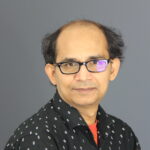 Dr. Md Mahfuzur Rahman is a Lecturer of Computer Science at Georgia State University, Atlanta, Georgia. His research interests primarily lie in the intersection of Explainable AI (XAI), medical image computing, and computer vision. Dr. Rahman and his colleagues have focused on building explainability pipelines in neuroimaging, with the overarching goal of gaining insights into brain disorders. He obtained his Ph.D. in Computer Science from Georgia State University. Prior to the current appointment, he was a postdoctoral researcher at the Tri-institutional Center for Translational Research in Neuroimaging and Data Science in Atlanta, Georgia.
Dr. Md Mahfuzur Rahman is a Lecturer of Computer Science at Georgia State University, Atlanta, Georgia. His research interests primarily lie in the intersection of Explainable AI (XAI), medical image computing, and computer vision. Dr. Rahman and his colleagues have focused on building explainability pipelines in neuroimaging, with the overarching goal of gaining insights into brain disorders. He obtained his Ph.D. in Computer Science from Georgia State University. Prior to the current appointment, he was a postdoctoral researcher at the Tri-institutional Center for Translational Research in Neuroimaging and Data Science in Atlanta, Georgia.
Workshop Speakers
Emerging Neurotechnologies
Keynote: John Rogers, Northwestern University, USA
Jian-Ping Wang, University of Minnesota, USA
Keith Mathieson, University of Strathclyde, UK
Yao-Hung Liu, IMEC, The Netherlands
Maysam Chamanzar, Carnegie Mellon University, USA
Machine Learning and Computer Paradigms for Brain Discovery
Keynote: Christos Davatzikos, University of Pennsylvania, USA
Laleh Najafizadeh, Rutgers University, USA
Gloria Menegaz, University of Verona, Italy
Malte Hoffmann, MGH Harvard Medical School, USA
Brad Aimone, Sandia National Labs, USA
Clinical Applications and Impact
Keynote: Jose Pons, Shirley Ryan Ability Lab, USA
Zhi-De Deng, NIH (NIMH), USA
Padma Sundaram, Harvard Medical School, USA
Sudhin Shah, Cornell University, USA
Vesna Sossi, University of British Columbia, Canada
Technology Transfer and Funding Panel
Amy Kruse, General Partner and Chief Investment Officer, Satori Neuro
Asli Aras, Vice President and Head of Corporate Development, RTI International
Bradford Casey, Michael J. Fox Foundation
Svetlana Kurilova, Associate Technology Manager, Office of Technology Management, UIC
Phillip R. Troyk, Executive Director, Pritzker Institute of Biomedical Science and Engineering, Illinois Institute to Technology
Location
Student Services Building
University of Illinois, Chicago
1200 W. Harrison St, Chicago IL 60607
2024 IEEE Brain Workshop Full Program (downloadable)
General Program
Day 1: Thursday, October 3, 8:30 – 7:00
| 8:30 | Welcome and Opening Remarks |
| 8:40 | Plenary Keynote: Dr. Alex Leow |
| 9:15 – 12:15 | Symposium 1: Emerging Neurotechnologies |
| 9:15 | Keynote: John Rogers, Northwestern University, USA |
| 10:00 | Keith Mathieson, University of Strathclyde, UK |
| 10:20 | Maysam Chamanzar, Carnegie Mellon University, USA |
| 10:40 | Break |
| 11:00 | Jian-Ping Wang, University of Minnesota, USA |
| 11:20 | Yao-Hung Liu, IMEC, The Netherlands |
| 11:40 | Symposium 1 Speakers Panel Discussion |
| 12:15 – 12:45 | IEEE Brain Neuroethics Presentation |
| 12:45 – 2:00 | Lunch Break (lunch provided) |
| 12:45 – 2:00 | IEEE Brain Neuroethics World Cafe Feedback Session |
| 2:00 – 5:00 | Symposium 2: Machine Learning and Computer Paradigms for Brain Discovery |
| 2:00 | Keynote: Christos Davatzikos, University of Pennsylvania, USA |
| 2:45 | Laleh Najafizadeh, Rutgers University, USA |
| 3:05 | Mahfuzar Rahman, Georgia State University, USA |
| 3:25 | Break |
| 3:45 | Malte Hoffmann, MGH Harvard Medical School, USA |
| 4:05 | Brad Aimone, Sandia National Labs, USA |
| 4:25 | Symposium 2 Speakers Panel Discussion |
| 5:00 – 5:30 | Poster Session Introductions |
| 5:30 – 7:00 | Poster Session and Reception |
Day 2: Friday, October 4, 8:30 – 5:45
| 8:30 | Welcome to Day 2 |
| 8:40 | Plenary Keynote: Amy Kruse, Satori Neuro |
| 9:15 – 12:15 | Symposium 3: Clinical Applications and Impact |
| 9:15 | Keynote: Jose Pons, Shirley Ryan Ability Lab, USA |
| 10:00 | Padma Sundaram, Harvard Medical School, USA |
| 10:20 | Zhi-De Deng, NIH (NIMH), USA |
| 10:40 | Break |
| 11:00 | Sudhin Shah, Cornell University, USA |
| 11:20 | Vesna Sossi, University of British Columbia, Canada |
| 11:40 | Symposium 3 Speakers Panel Discussion |
| 12:15 – 12:45 | Live Demonstration / Poster Introductions |
| 12:45 – 2:30 | Lunch Break (lunch provided) |
| 12:45 – 2:15 | Live Demonstration / Poster Session |
| 2:00–2:30 | Get Involved with IEEE Brain: Students and Young Professionals Meeting |
| 2:30 – 4:15 | Technology Transfer and Funding Panel |
| 4:15 – 5:00 | Break / Light Reception |
| 5:00 – 5:45 | Awards and Closing Remarks |
All times are Central US Time.
We invite participants of the 2024 IEEE Brain Discovery and Neurotechnology Workshop to contribute interactive poster presentations and live demonstrations. Posters offer the opportunity to present your recent research or research work in progress to experts and receive valuable feedback, while live demonstrations allow for the opportunity to present a device or concept in addition to the poster. These sessions will encourage networking and discussion among peers and might also start new collaborations. Poster boards will be provided to all presenters, and small tables will be available for live demonstrations if needed.
The Workshop will take place October 3-4, 2024, at the University of Illinois, Chicago. Poster sessions are scheduled for Thursday, October 3, and live demonstrations are on Friday, October 4. All accepted submissions will be required to register for the Workshop (link on the main website) and to present a one-minute slide prior to their scheduled session. Submissions with students (undergraduate and graduate) and post-docs as presenting authors will be considered for Best Poster and Best Demonstration Awards. Limited travel awards are also available to provide support for presenting students to attend the workshop.
Please use this FORM to submit your abstract.
Submissions are due Monday, September 9.
Registration Now Open!
Groundbreaking solutions with the potential to improve quality of life and address neural disorders require an integrated approach among stakeholders. The goal of this workshop is to bring the engineering, clinical, and neuroscience communities together to focus on collaborative opportunities. Program highlights include plenary keynotes; symposiums on emerging neurotechnologies, machine learning and computer paradigms for brain discovery, clinical applications; IEEE Brain Neuroethics working sessions; funding and translation panels; posters; live demonstrations; exhibits. Registration fees include the two-day workshop activities, breaks, lunch, and receptions. Please use the link below to register.
Register at: https://cvent.me/x1L5dr
Dates & Location
October 3-4, 2024
University of Illinois, Chicago
Chicago, USA
Registration Fees
| Early Rates (through September 21) | |
| IEEE Member: $325 | IEEE Student: $50 |
| Non-Member: $375 | Non-Member Student: $75 |
| Regular Rates (September 22 – October 3) | |
| IEEE Member: $350 | IEEE Student: $75 |
| Non-Member: $400 | Non-Member Student: $100 |
Sponsorship
IEEE Brain invites company and university exhibitors and sponsors to participate in the
workshop. More information can be found at the registration link and here.


